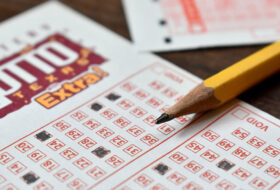
As of Jan 9, Texas residents have a new option for buying draw lottery tickets online. The international operator Jackpot.com has made its US debut in the Longhorn State.
Jackpot.com is owned by the Malta-based gambling company Lottomatrix. In other markets, the site includes a casino and online “scratchcards.” However, in the US, it will be sticking to lottery courier services for the time being.
Online gambling is not legal in Texas. However, services like Jackpot.com aren’t offering any gambling products of their own. They simply facilitate the sale of tickets for the state lottery, saving players the hassle of a trip to the gas station or corner store.
Jackpot.com is emphasizing the local market through exclusive marketing partnerships with local sports teams: the Dallas Cowboys, Houston Rockets and San Antonio Spurs.
CEO Akshay K. Khanna previously spent three years selling tickets of a different kind – that is, event tickets – at StubHub. In the launch announcement, he pointed out the similarity between the businesses:
More than half of Americans buy lottery tickets each year, but only a fraction are bought online – including in Texas, the country’s third-largest lottery market. During my time at StubHub, I saw first-hand how impactful digitization can be to expanding access and growing an industry. With Jackpot.com, we’re modernizing America’s favorite game by enhancing the player experience, expanding accessibility, and offering safety guardrails that set a new standard for responsible gaming.
Demand for online lottery sales is high at the moment. Billion-dollar draw jackpots have become commonplace, and those wanting to participate don’t necessarily want to make a special trip to make a $2 ticket purchase. Over a dozen states now sell their lottery tickets online directly. However, other states, like Texas, have constitutional restrictions that require a referendum to make such a change. Authorizing lottery couriers like Jackpot.com has proven to be an easier option for such states.
How Do Lottery Couriers Work?
Most forms of online gambling are illegal by default under federal law unless explicitly authorized by a state. Actually selling lottery tickets online would qualify as offering a gambling product.
Instead, lottery couriers are essentially providing a deferred delivery service. The user pays for the ticket, plus a service charge, and the lottery courier buys it on their behalf. It’s much like a food delivery service such as Uber Eats or DoorDash, except that the courier only delivers the ticket if it wins a prize large enough to require identification. For losing tickets and smaller prizes, an emailed scan of the ticket and receipt is enough. The service redeems smaller prizes itself and credits the user’s account with the winnings.
If that sounds like a legal loophole, it is. However, states vary in the extent to which they welcome the possibility or seek to shut it down. Texas has been one of the more enthusiastic states, as well as a large lottery market, with $8 billion in sales in 2022. It has therefore been a popular jumping-off point for such services, just as New Jersey is for online casinos.
Likewise, the couriers themselves run the gamut from compliant to “Wild West” operations. However, even the most legitimate operations sometimes get themselves in trouble. Jackpocket, which operates in 14 states plus D.C., had to pull out of Florida in 2021 after its wholly-owned retail affiliate Winner’s Corner had its license revoked by the state lottery.
Jackpot.com, Not to Be Confused With Jackpocket
Speaking of Jackpocket, there’s another form of legal drama ongoing involving it and Jackpot.com.
Any time two companies with similar names and products find themselves in competition, a trademark battle is almost inevitable. Such is the case with these two easily-confused brands.
Jackpocket filed suit against Jackpot.com in July 2022 after the latter revealed its plans to enter the US market. Naturally, it feels that customers will conflate the brands and that Jackpot.com will benefit unfairly from Jackpocket’s marketing efforts.
However, Jackpot.com has been operating under that name for years in other markets. Moreover, courts tend to interpret intellectual property laws quite narrowly when it comes to common English words like “jackpot,” holding that the trademark only applies in so far as the word has taken on a meaning distinct from its common usage. Apple computers are the canonical example of this; Apple can defend its trademark only because computers have little to do with fruit and vice versa.
Judge Lewis J. Liman of the federal Southern District of New York ruled against Jackpocket in December. Jackpocket is appealing the decision, but in the meantime, it has cleared the way for Jackpot.com to launch as planned in Texas, using its moniker of choice.
NCPG Certification
Jackpot.com has obtained responsible gambling certification from the National Council on Problem Gaming (NCPG) prior to launch. Lottery players will find resources for responsible play on the site and tools to limit their deposits or self-exclude as necessary.
The site will also provide notification to the user if its algorithms detect a suspicious or risky pattern of play.
Other lottery couriers to have obtained similar certification from the NCPG include Jackpocket and Lotto.com.





